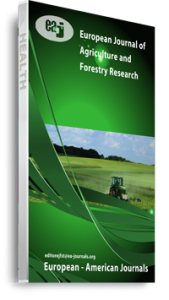Provision of quality treated wastewater effluents in form of irrigation water will potentially be an option to augment the water needs in agricultural irrigation. However, if the effluents did not meet the irrigation quality standards, their application will be detrimental to the receiving soils, consequently leading to soil and crop quality deterioration. The aim of this study is to assess if Sharada industrial effluents are fit for irrigation application. The irrigation water quality assessment was carried out in three phases (Phases I, II and III) of the industrial locations. Findings indicated that the concentration of the major key irrigation water quality parameters; Electrical conductivity (EC), pH, Exchangeable sodium (Na), Calcium (Ca), Magnesium (Mg) and Total dissolved solids (TDS) were of good quality and suitable for irrigation regardless of phases. However, the concentration of bicarbonate (HCO3), Chlorides (Cl), Potassium (K) and Nitrate (NO3-N) values detected in the samples were 488, 305, 305meq/l, 177.50, 159.75, 124.25meq/l, 18.99, 17.72, 13.50mg/l, and 119.09, 59.54, 31.53mg/l respectively. These values were high and of poor quality, thus, unfit for irrigation. Moreover, NO3-N and HCO3 in all irrigation effluents recorded high significant difference (P<0.05) in phase I compared to other phases while, Cl and K were highly significant (P<0.05) in phases I and II in comparison to phase III. Overall, the result when tested for irrigation quality compliance using International Standards revealed that compliance was achieved with reference to pH, EC, Na, Ca, Mg and TDS, while noncompliance was recorded for other irrigation water quality indices indicating that the effluents will be suitable for irrigation under careful, adequate and very effective proper management including improved irrigation system and schedule, soil with good permeability, infiltration and internal drainage, and use of good salt tolerant crops. The importance of this research lies in the fact that the effluents could not be a reliable and effective potential source of irrigation water rich in nutrients capable of increasing soil fertility and crop quality as is the practice of the farmers in the area.
Keywords: : Irrigation, Effluents, Soil Quality, Water Quality, crop quality

